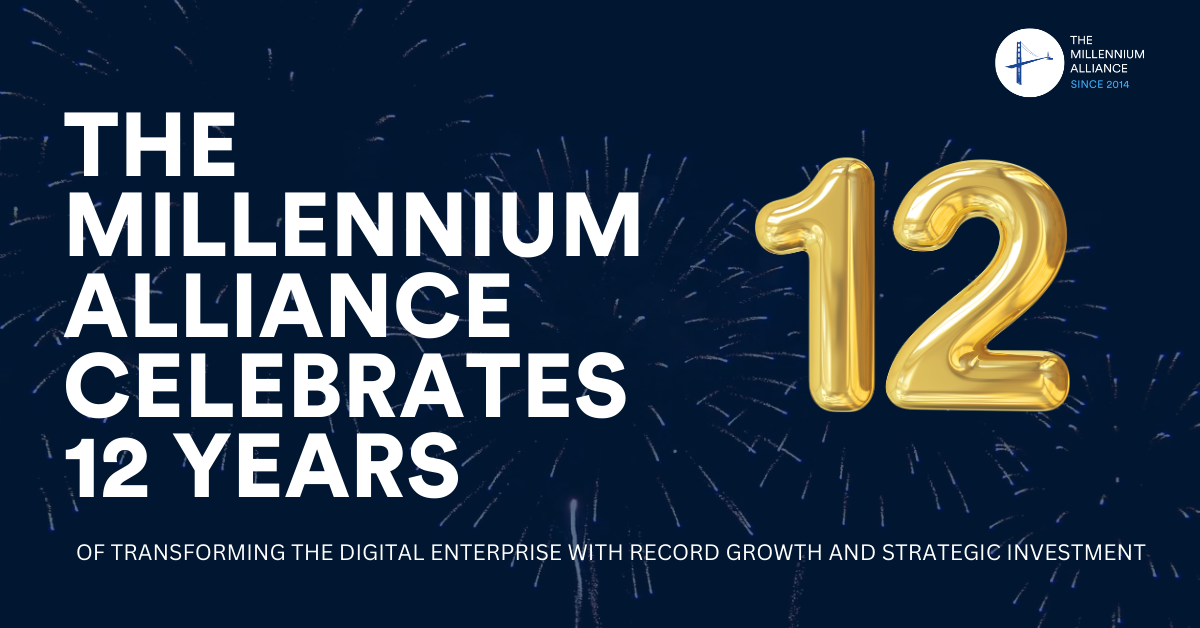With the rise of digital transformation, enterprises have incorporated a variety of tools into business functions in order to keep up to date with technology. The concept of “disrupt or fall behind” has made a strong impact on enterprises, and as a result, business professionals have made a strong effort to become familiar with the different tools that can impact businesses.
Cloud computing is part of that equation.
“Running your business in the cloud is no longer just a consideration during a typical use-case exercise. Business executives are now faced with making decisions on solutions that go beyond previous limitations with cloud computing. Selecting the latest tools to address a business process gap is now less about features and more about functionality.” Digitalist Mag reports.
Cloud Services Were Created…
Cloud computing is used more than you may think, especially if you are using technology. It basically just refers to any IT resources being used over the internet. It offers a wide range of services, like creating apps, storing and recovering data, hosting websites or streaming audio and video. It centralizes all IT activities done over the internet into one place.
There are benefits of using cloud computing, and according to Microsoft Azure, it has “transformed the way businesses think about IT services.” Understanding the benefits of cloud computing is important while diving into the outcomes of using this service. We turned to Microsoft Azure once more, to get an expert perspective on the benefits of this service:
1. Cost
Cloud computing eliminates the capital expense of buying hardware and software and setting up and running on-site datacenters—the racks of servers, the round-the-clock electricity for power and cooling, the IT experts for managing the infrastructure. It adds up fast.

2. Speed
Most cloud computing services are provided self-service and on-demand, so even vast amounts of computing resources can be provisioned in minutes, typically with just a few mouse clicks, giving businesses a lot of flexibility and taking the pressure off capacity planning.

3. Global scale
The benefits of cloud computing services include the ability to scale elastically. In cloud speak, that means delivering the right amount of IT resources—for example, more or less computing power, storage, bandwidth—right when it’s needed, and from the right geographic location.

4. Productivity
On-site datacenters typically require a lot of “racking and stacking”—hardware set up, software patching, and other time-consuming IT management chores. Cloud computing removes the need for many of these tasks, so IT teams can spend time on achieving more important business goals.

5. Performance
The biggest cloud computing services run on a worldwide network of secure data centers, which are regularly upgraded to the latest generation of fast and efficient computing hardware. This offers several benefits over a single corporate datacenter, including reduced network latency for applications and greater economies of scale.

6. Reliability
Cloud computing makes data backup, disaster recovery, and business continuity easier and less expensive because data can be mirrored at multiple redundant sites on the cloud provider’s network.

The Impact Of Cloud Computing So Far…
Many leading industries have been disrupted by the cloud. Whether you are a marketing professional, retail professional, healthcare professional or security professional, cloud computing has probably made its way into your business.
RETAIL
Cloud computing has made it really easy for the retail industry to carry out e-commerce functions. Retailers who have not adapted to the cloud are met with outdated resources that do not meet the needs of interacting with multiple channels, which, as a retailer, is very important.
Meeting customers on an omnichannel level makes a huge difference when retailers are trying to stay up to date with the competition. Cloud computing has made this easier, more effective and agiler because it has centralized all data into one place. Cloud computing also provides retail professionals with customer insights, that can be used further into business functions.
“With the cloud, retailers can have supply chain systems capable of adequately handling their business without stock-outs, expedited deliveries, or high inventories.” New Gen Apps reports.
HEALTHCARE
Experts have deemed cloud computing as a tool that has “revolutionized” healthcare. As the healthcare sector moves toward digital, cloud computing has played a major role in this shift. Just as the retail industry uses the cloud, the healthcare industry uses it in a similar way, except the data that is being stored through the cloud belongs to patients, which makes it classified and more sensitive.
“Healthcare sector has been moved to digital platform today where it collects plenty of data. The most popular IT Companies do offer cloud computing services that mainly focused on healthcare data to transform it into meaningful information. Further, it makes data sharing easy and more accessible for the users.” Huffington Post reports.
Cloud computing makes it easy for healthcare professionals to reach patients in an efficient way, not to mention, an agiler way. It is no surprise that the healthcare industry needs a powerful system in order to effectively manage such secure data and cloud computing is just that. Using the cloud helps healthcare professionals store, search and obtain important information that ultimately makes for better overall decisions.
SECURITY
Cloud computing is no stranger to the security industry. In fact, cloud computing is only growing. Forbes released a report about this last year, revealing a study done by Intel Security that surveyed over 2,000 professionals getting a first-hand insight into their opinions on cloud computing and what the future holds.
All in all, cloud computing in the security and IT sector will expand over time, and professionals must learn to adapt to the platform. You can view all the key insights here.
What’s Next
All in all, industries are benefiting from cloud computing in a major way, by relying on it as a secure database to carry out a variety of business functions.
“Gartner’s latest worldwide public cloud services revenue forecast published earlier this month predicts Infrastructure-as-a-Service (IaaS), currently growing at a 23.31% Compound Annual Growth Rate (CAGR), will outpace the overall market growth of 13.38% through 2020.” Forbes reports.














